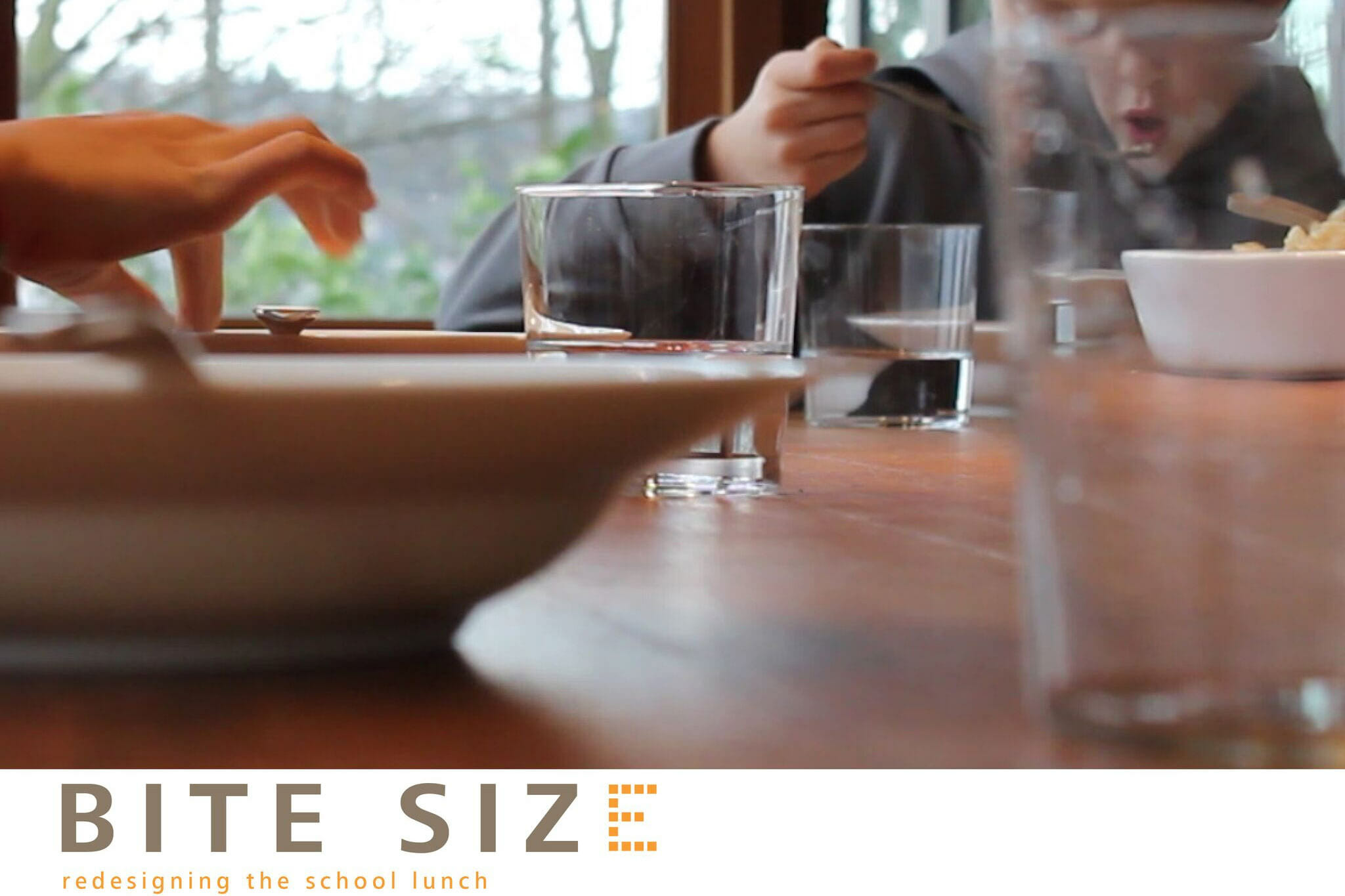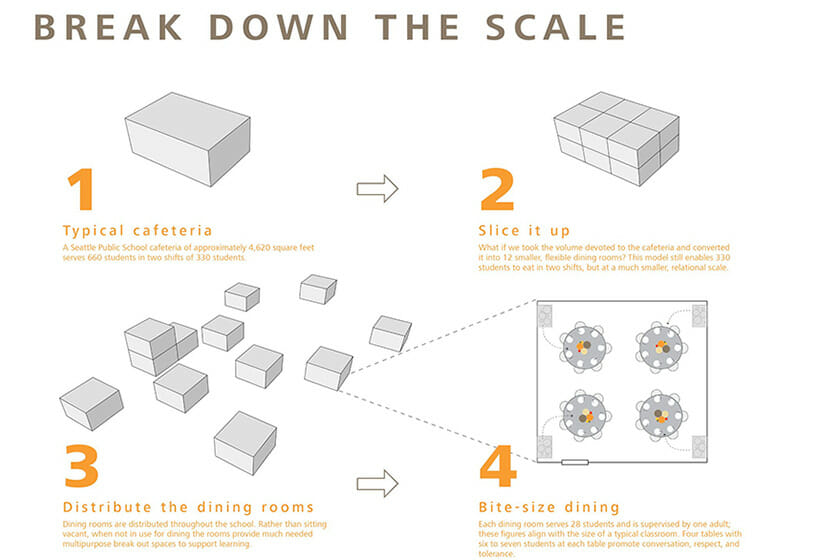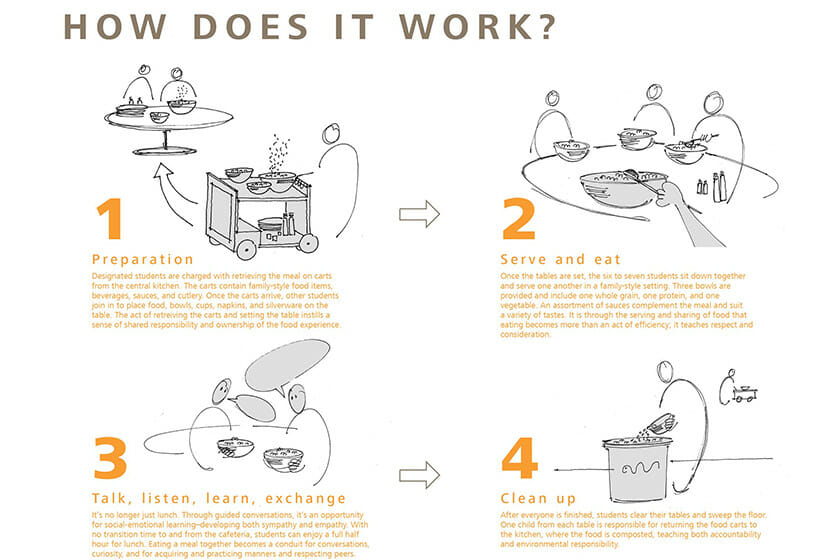Pro Bono Facilities Master Planning
Impact NW is well on its way to realizing a dream that began in 2014, when Mahlum chose them as the recipient of a pro bono master planning project. Having recently gone through a change of leadership and an intense period of growth and visioning, they wanted to turn attention to their numerous facilities and establish a long-term vision to maximize community benefit.
Impact NW is a broad organization consisting of 8 departments that run 40+ programs spread over 8 primary facilities. Through a combination of focus meetings with the leadership team, volunteers, clients, and various departments, Mahlum began to understand the organizational complexities and create a series of diagrams to graphically represent each facility, its programs and employees, and where there may be flexibility to better aid collaboration and access to services.
To assure staff input, we held a “journey mapping” workshop, allowing staff to role-play and brainstorm solutions to the five most pressing organizational issues we had been discussing – safety, accessibility of services, collaboration, adaptability, and empowerment. Further, there was opportunity for individuals to give anonymous input about their facilities and workspaces. Once Mahlum had a clear understanding of the organization and their direction, we worked together on a multi-branched approach to establishing a master facilities plan. This in-depth process was summarized in a report that became the base material for a capital campaign to renovate and further develop strategic properties.
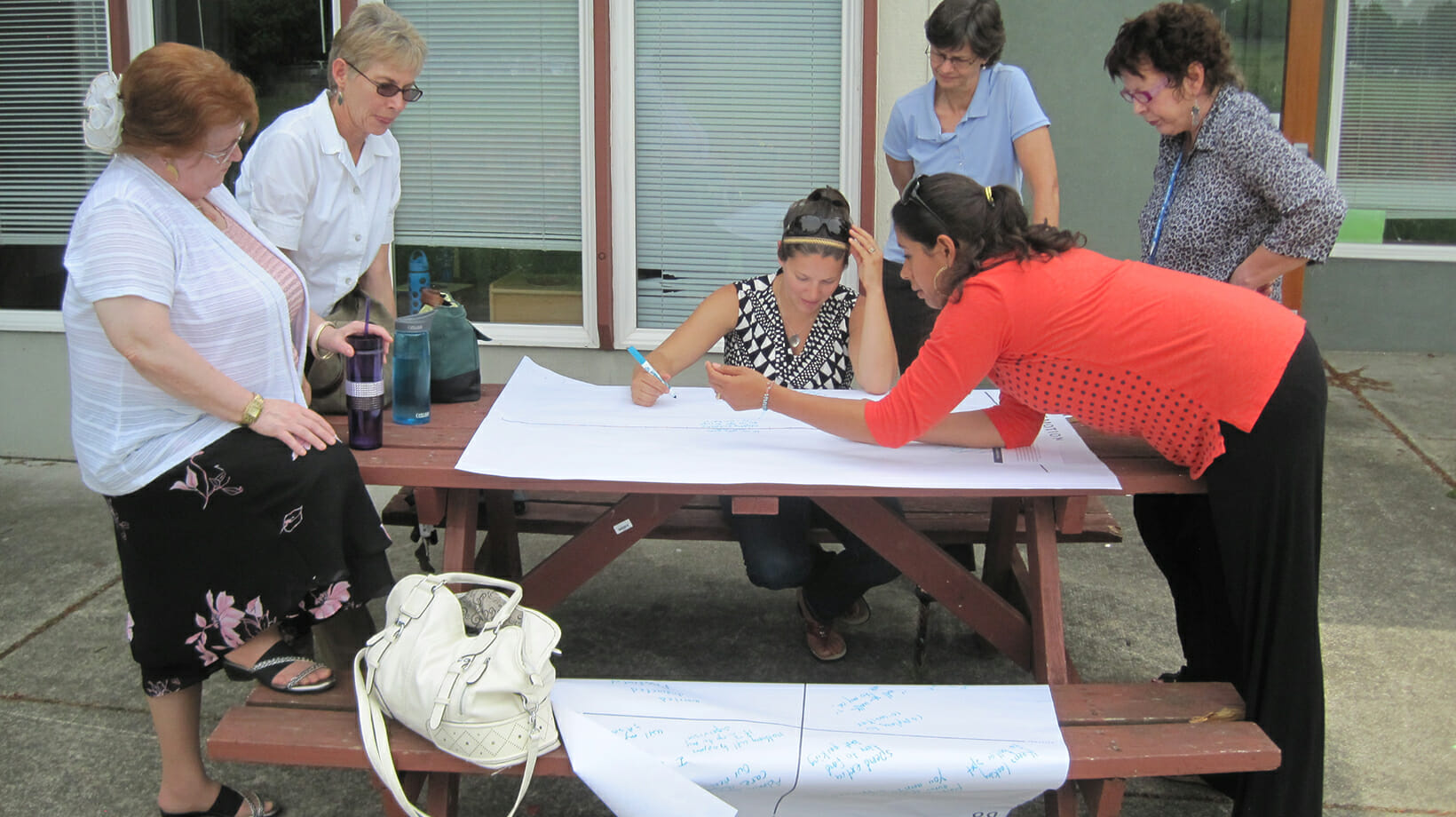
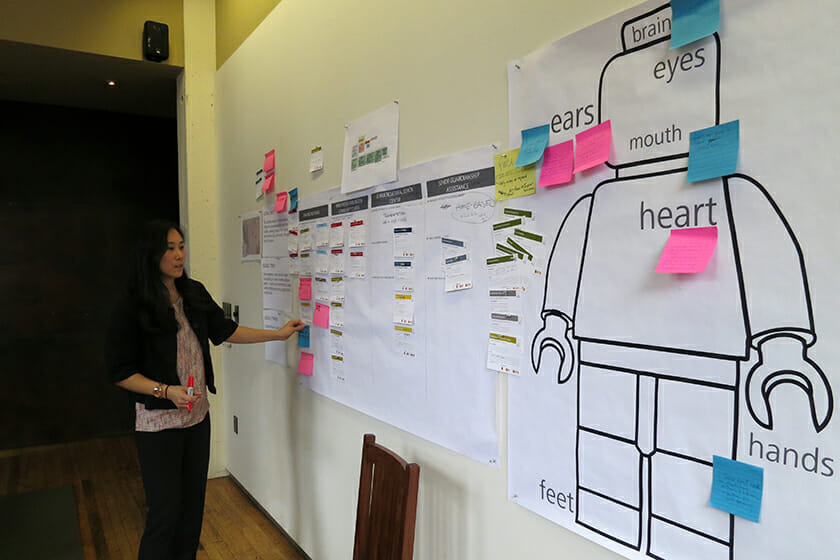
About Impact NW
Impact NW’s mission is to help people prosper through a community of support. By working with schools, businesses, faith communities, other community-based organizations, and governmental agencies, they create a safety net and springboard for community members to improve their quality of life and achieve independence.

